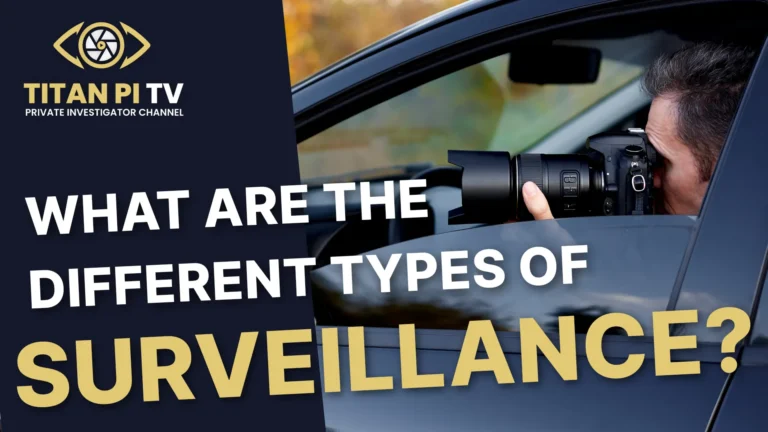Titan’s Online Physical Penetration Testing Course
Titan PI TV Unveils Groundbreaking Online Physical Penetration Testing Course
In the ever-evolving world of security and private investigation, staying ahead of the curve is not just an advantage—it is a necessity. This week, Titan PI TV, the popular YouTube channel offering a rare glimpse into the inner workings of a live operational investigation agency, has announced the imminent launch of its latest online training course: “Titan’s Online Physical Penetration Testing”. Hosted by Simon Henson, Managing Director of Titan Private Investigation Limited, the episode provides an exclusive preview of this innovative course, set to redefine professional standards in physical security testing.
Understanding Physical Penetration Testing
Physical penetration testing, despite its occasionally humorous reception, represents a serious security practice involving the covert assessment of an organisation’s physical security measures. As Henson explains, this methodology falls under the broader category of “black teaming” – one of several approaches to security testing.
The discipline has gained significant attention recently with high-profile incidents affecting major UK retailers including Marks & Spencer and the Co-operative, where “red teaming” exercises have exposed critical vulnerabilities. These objective-led penetration tests specifically target sensitive areas, networks, and data, demonstrating the real-world consequences of security gaps.
While red teams conduct the simulated attacks, organisations typically deploy “blue teams” to respond to and mitigate these threats. The interaction between these opposing forces creates valuable learning opportunities, particularly when they collaborate in “purple teaming” exercises, sharing information to strengthen overall security posture.
The Six-Phase Methodology
Titan’s new online course will provide comprehensive instruction on the six-phase cycle that forms the foundation of professional physical penetration testing:
- Information Gathering (Passive Reconnaissance): Collecting publicly available information without direct interaction
- Threat Modelling: Identifying potential vulnerabilities and attack vectors
- Vulnerability Analysis (Active Reconnaissance): Direct assessment of security measures
- Exploitation: Testing identified vulnerabilities
- Post-Exploitation: Determining the extent of potential compromise
- Report Writing: Documenting findings and recommendations
Course Structure and Practical Application
Unlike Titan’s existing two-day in-person course conducted at their Derby training facility, which includes live penetration testing exercises, the online version will focus on detailed instruction across all six phases. The course will feature filmed demonstrations of actual penetration tests, providing students with visual examples of techniques in action.
“It’s going to be a brilliant course,” Henson enthused, highlighting that while developed in the UK, the online format makes it accessible to security professionals globally.
Expanding Training Portfolio
This new offering complements Titan’s existing training programmes, which include:
- Five-day RQF Level 4 surveillance courses (basic, intermediate, and advanced)
- Online surveillance training
- In-person physical penetration testing courses
Understanding Physical Penetration Testing
Physical penetration testing, despite its occasionally humorous reception, represents a serious security practice involving the covert assessment of an organisation’s physical security measures. As Henson explains, this methodology falls under the broader category of “black teaming” – one of several approaches to security testing.
The discipline has gained significant attention recently with high-profile incidents affecting major UK retailers including Marks & Spencer and the Co-operative, where “red teaming” exercises have exposed critical vulnerabilities. These objective-led penetration tests specifically target sensitive areas, networks, and data, demonstrating the real-world consequences of security gaps.
While red teams conduct the simulated attacks, organisations typically deploy “blue teams” to respond to and mitigate these threats. The interaction between these opposing forces creates valuable learning opportunities, particularly when they collaborate in “purple teaming” exercises, sharing information to strengthen overall security posture.
The Six-Phase Methodology
Titan’s new online course will provide comprehensive instruction on the six-phase cycle that forms the foundation of professional physical penetration testing:
- Information Gathering (Passive Reconnaissance): Collecting publicly available information without direct interaction
- Threat Modelling: Identifying potential vulnerabilities and attack vectors
- Vulnerability Analysis (Active Reconnaissance): Direct assessment of security measures
- Exploitation: Testing identified vulnerabilities
- Post-Exploitation: Determining the extent of potential compromise
- Report Writing: Documenting findings and recommendations
Course Structure and Practical Application
Unlike Titan’s existing two-day in-person course conducted at their Derby training facility, which includes live penetration testing exercises, the online version will focus on detailed instruction across all six phases. The course will feature filmed demonstrations of actual penetration tests, providing students with visual examples of techniques in action.
“It’s going to be a brilliant course,” Henson enthused, highlighting that while developed in the UK, the online format makes it accessible to security professionals globally.
Expanding Training Portfolio
This new offering complements Titan’s existing training programmes, which include:
- Five-day RQF Level 4 surveillance courses (basic, intermediate, and advanced)
- Online surveillance training
- In-person physical penetration testing courses
Community Engagement
The episode concluded with Henson thanking viewers for helping the channel reach 2,000 subscribers and announcing a competition to win exclusive Titan PITV t-shirts. Viewers were encouraged to engage through social media channels for a chance to win.
For those interested in the upcoming course, Henson invited viewers to express interest via the Titan Investigations website (www.titaninvestigations.co.uk), noting that detailed information will be available on the training pages next month.
The episode also reminded viewers that Titan PITV content is available in podcast format across all major podcast platforms.
As organisations face increasingly sophisticated security threats, Titan’s expanded training offerings represent a timely resource for security professionals seeking to protect critical assets through comprehensive physical security testing methodologies.
What’s Next on Titan PI TV?
Thank you for reading, watching or listening to this week’s blog post on Titan PI TV. If you found this information helpful, please give us a thumbs up and subscribe to our channel. We’re aiming to reach 2,000 subscribers in the next few weeks, and we currently have 1,965 channel subscribers. So we’re getting close to our next target.
Stay tuned for more insights into the world of private investigations. Until next time, stay safe and keep learning!
Titan PI TV: Uncovering the Truth, One Investigation at a Time.




















